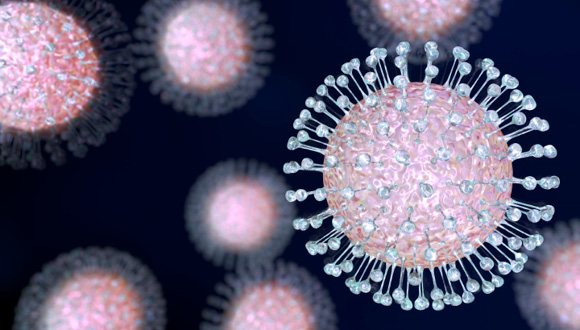Coronavirus Q&A: How Worried Should You Be?
Feb. 7, 2020 - Katie McCallumIf you've been watching or reading the news lately, you've already heard a lot about the "novel" (aka new) coronavirus. And, as with any new outbreak or illness, you're probably wondering whether or not you should be worried.
"As of right now, unless you've traveled to China recently, or have had close contact with a confirmed case, there's very little chance to contract the Novel 2019 Coronavirus," says Dr. Wesley Long, director of diagnostic microbiology at Houston Methodist. "But, there's still a lot of uncertainty about this virus and how it will affect us here in the U.S."
Dr. Long is here to answer questions you may have about the coronavirus, as well provide tips on how to best protect yourself.
Q: What is coronavirus?
A: While the Novel 2019 Coronavirus is technically a new virus, it falls in the same category as two viruses you've probably already heard of — SARS and MERS, as well as many viruses that cause the common cold. In general, coronaviruses are a class of viruses that cause upper respiratory infections ranging from mild to severe.
The new coronavirus was first detected in Wuhan City, China, in late December. Since that time, cases have been identified in countries around the world, including several confirmed cases in the U.S. — mostly associated with travel to China.
Q: How severe is this illness?
A: Most cases of the new coronavirus are mild to moderate and cause illness similar to the common cold.
Although rare, severe cases have led to pneumonia, difficulty breathing and even death. As of right now, the death rate of the new coronavirus is lower than that of both SARS and MERS.
Those at risk of developing a serious case of the new coronavirus include individuals who:
- Are over the age of 65
- Have chronic health conditions
- Are immune compromised, or otherwise immune suppressed
Q: What are the symptoms of the new coronavirus?
A: The symptoms of the new coronavirus are similar to those of a common cold, including fever and cough.
But, even if you're experiencing these symptoms, there's still no reason to suspect you have the new coronavirus unless you've traveled to the China recently, in particular the Hubei Province, or have been in contact with someone who has a CDC-confirmed case of the Novel 2019 Coronavirus.
If you're experiencing these symptoms and meet the criteria above, you should call your doctor for guidance. In addition, if you're experiencing severe or worsening symptoms, you should seek treatment at the nearest emergency room.
Q: How can I protect myself from the new coronavirus?
A: Similar to the common cold and flu, the new coronavirus spreads from person to person through close contact, typically via respiratory droplets. It's still unclear how contagious this virus really is, but most of the cases identified so far have been spread between immediate family members who live together.
To protect yourself from the new coronavirus, you should practice the same preventive hygiene as you would for regular cold and flu season, including:
- Frequent hand washing
- Avoiding touching your face
- Staying home from work, school or other public activities if you feel sick
- Avoiding close contact with sick individuals
While there's no vaccine for the new coronavirus, you can take other preventative measures, such as getting a flu shot or other vaccines, if you are eligible. We're still in flu season, so protecting yourself from more common viruses remains a priority.
In Houston, preparedness is in our DNA. We need to be prepared for potential new illnesses just as we would prepare for hurricanes, floods or other natural disasters. Make sure you have enough food, medicine and other necessities that would allow you to comfortably stay at home for several days if you were ill.
Q: How long will the outbreak last?
A: We're learning more and more about the new coronavirus every day, but it's still unclear if the outbreak will take hold in the U.S.
What we do know is there's been an unprecedented level of openness and data sharing between public health authorities, physicians and researchers related to new coronavirus outbreak — which will hopefully translate to improved containment and better outcomes for those affected by the illness.
Next Steps:


